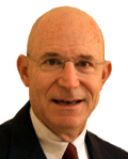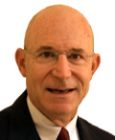Career
2 Secrets of Career Satisfaction Late in Life
A Personal Perspective: New ideas for opening new doors after a career setback.
Updated July 20, 2023 Reviewed by Michelle Quirk
Key points
- Finding career satisfaction after losing a job late in life is extraordinarily difficult.
- Age is an enormous barrier, but an even bigger obstacle can be the mindset of the fired employee.
- By reflecting on what's unique about you and what career success now means to you, you can survive and thrive.
The chief of staff, who, like me, reported directly to a retired admiral who reported directly to the president of the United States, popped his head in my office and said, “Sorry you had to hear about it first in an organization-wide email.”
My heart fell into my stomach; I asked, “Heard about what?”
“Oh,” the man said in a somber voice. “Guess you didn’t see it. You’ve been demoted. You now report to…”
The blood rushing in my ears drowned out whatever came next. Ambitious and obsessively driven by parents who admired little else but achievement, my body reacted instantly and violently to what my brain would soon figure out: In the murky, nasty, dog-eat-dog spy business (I was associate director of national intelligence) I was finished. A public, humiliating demotion signaled that, at 55, I’d soon get the boot. My choice was simple: Quit now or face even more humiliation in a firing that could make the front page of The Washington Post.
Feeling hollow, robbed of my life-long identity as a “success,” beaten and demoralized, I resigned.
What follows is a feel-good story of resilience and ultimate triumph in which I recovered from the devastating ego injury.
But before getting into all that, here’s what’s unique and valuable about my comeback story that you won’t find in the rich literature on resilience1 or from career advice columnists. (These mostly describe productive ways of responding to external risks and adversities.) My approach, contrary to the resilience literature, was to completely ignore external stressors and focus exclusively on internal cues.
I focused on my feelings, urges, and needs rather than on externals, such as why I’d been axed, where I could find a new job (so late in life), or what megatrends I could surf to new career glory. I took time for this bit of introspection because of the hard lessons learned as a research and development executive. Thirty years of struggling to bring new products to market taught me that the only new products worth developing were those that only my organization could create. Every time we attempted “me too” products, we failed, while most of the time we succeeded when we concentrated on what, literally, no one else in the world could do.
Secret #1: Only do what only you can do.
Before launching my fifth career (having hopped from neuroscience, to aerospace, to entertainment, to intelligence), the first thing I did after rousing myself from a deep depression, was to ask, “If you, Eric, were a new product coming out of an R&D lab, what would be a product that only you could create?” This was an all-important question because prospective new employers I’d contacted all gave the same feedback: “Your weird career is a dog’s breakfast, hodgepodge. We can’t hire you because—with that ADHD-fueled resume—we can’t bring into clear focus who you are!"
Reflecting upon that feedback, it hit me that the only career ideas I should focus on were things that only someone with my peculiar background in brain science, weapons design, media and entertainment, and spying could offer. That special something turned out not to be what I learned that was different from those widely diverging disciplines but what was universal and, therefore, valuable across any arena of human endeavor. What I’d learned was how—regardless of the business they were in—humans can best cope with radical change when radical change is inevitable. How does the brain perceive and react to disruptions such as 9/11, tectonic shifts in media technology, or rapid advances in adversary military capability? How can organizations overcome hardwired cognitive biases that resist inevitable change? So, I wrote books and articles on those themes, went on the speaking circuit, and hung out a shingle as a corporate innovation consultant.
Secret #2: Define what success means for you
The path I chose was not free of big pitfalls. In 2018 and 2019, many of the paid advisory boards I’d joined pushed me out, my biggest consulting customer dumped me (twice), and none of my books were bestsellers. And none of my expensive patents generated any income. Enough money was coming in to put food on the table, but gone were the halcyon days of big stock option grants, stories about me in the newspapers, or appearances on network TV talk shows. Then COVID hit and consulting work and speaking completely dried up.
In my early 70s, not wanting to retire because I’m still obsessed with achievement, I was forced to look inside once more and ask, “What does success mean for Eric?” It didn’t take long to come up with the answer: Success meant doing whatever eases my anxieties about being worthless.
Now, that could have meant going back into therapy to learn to be happy puttering around in retirement, but, in my case, it meant starting a company offering a new product that only I, with my weird combination of experiences with different technologies, could invent: a custom magnetometer used in ship repair.
Yeah, I know. Ship repair? But the product sprang from my experiences in brain research, flight simulation, virtual reality, and technical counterintelligence, and is helping an important industry, so I don’t feel worthless. My new company is in no danger of being listed on the NASDAQ anytime soon, but, hey, I have defined success to be only that which keeps my gnawing anxieties under control, so by that definition, I’m a success!
All of this prompts me to modify Frederick the Great’s dictum: “Who conquers themselves, conquers the world,” to my version: “Who knows themselves conquers the world.”
References
1. Vella, Shae-Leigh Cynthia; Pai, Nagesh B. A Theoretical Review of Psychological Resilience. Defining Resilience and Resilience Research over the Decades. Archives of Medicine and Health Sciences. 2019;7(2):233–239. DOI: 10.4103/amhs.amhs_119_19




